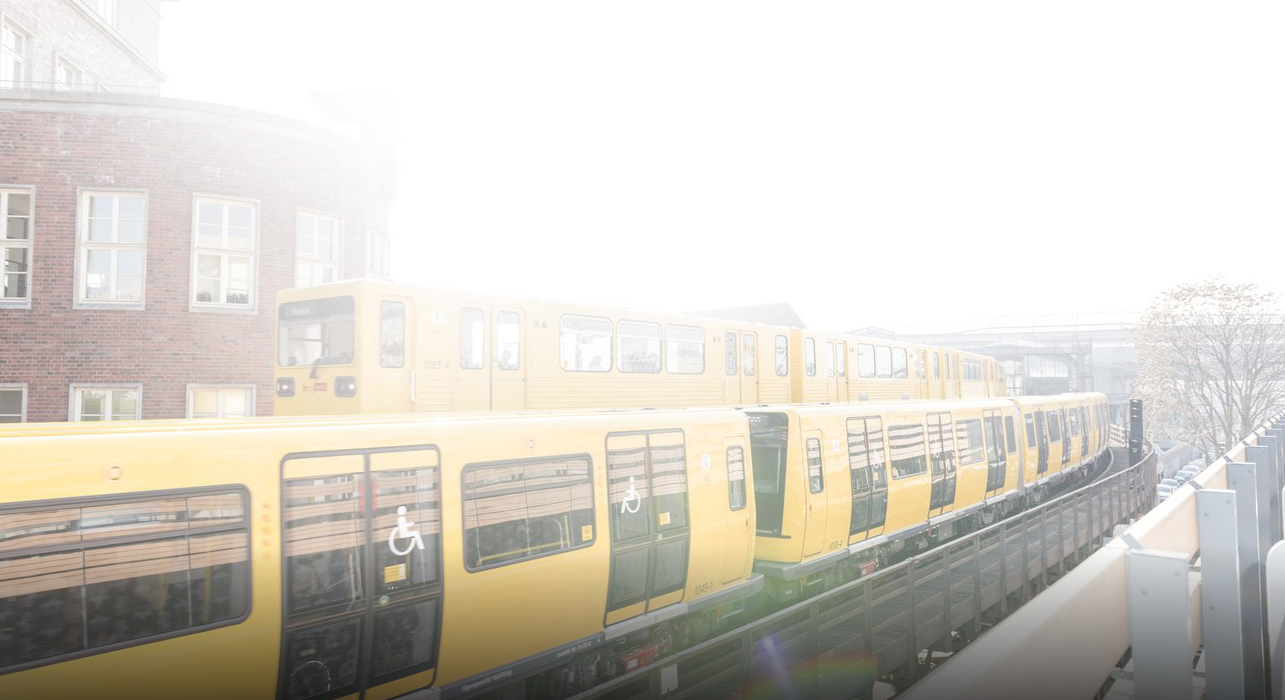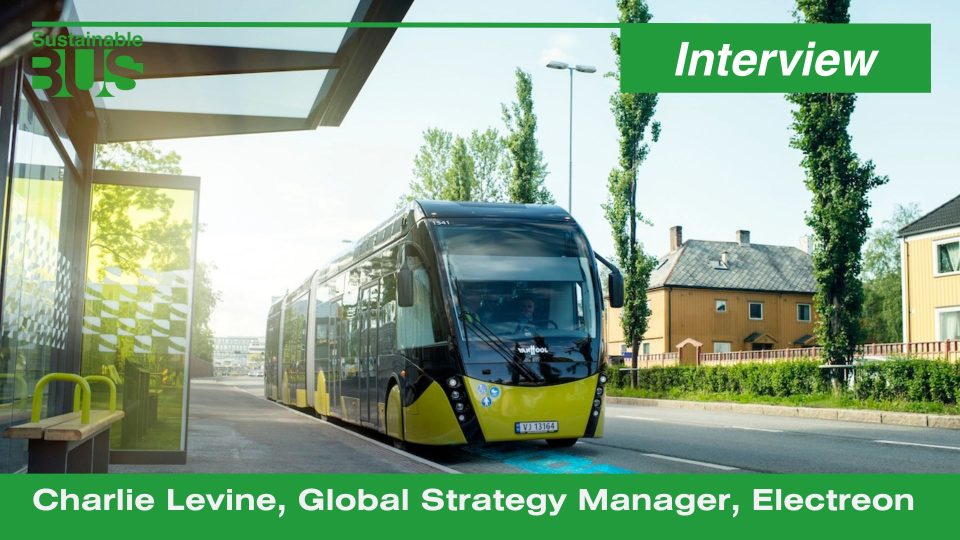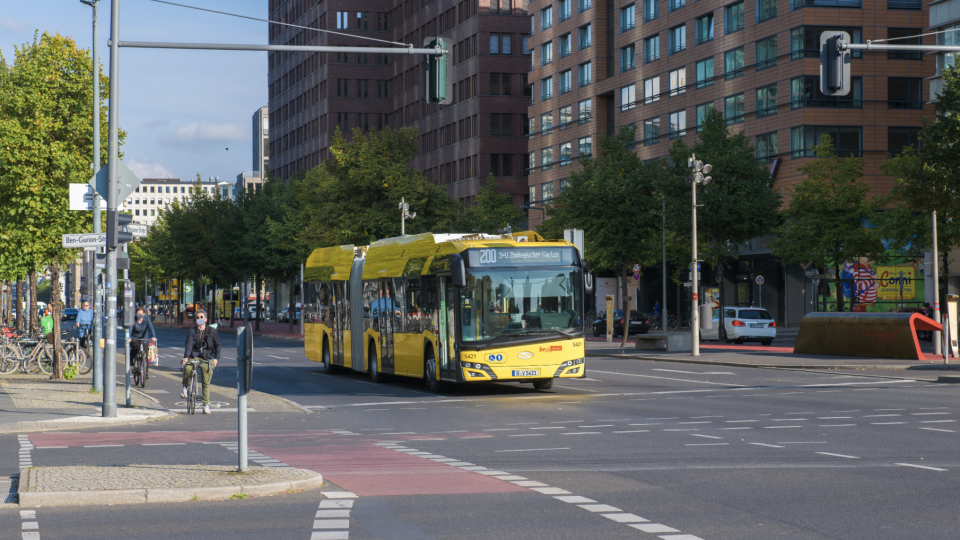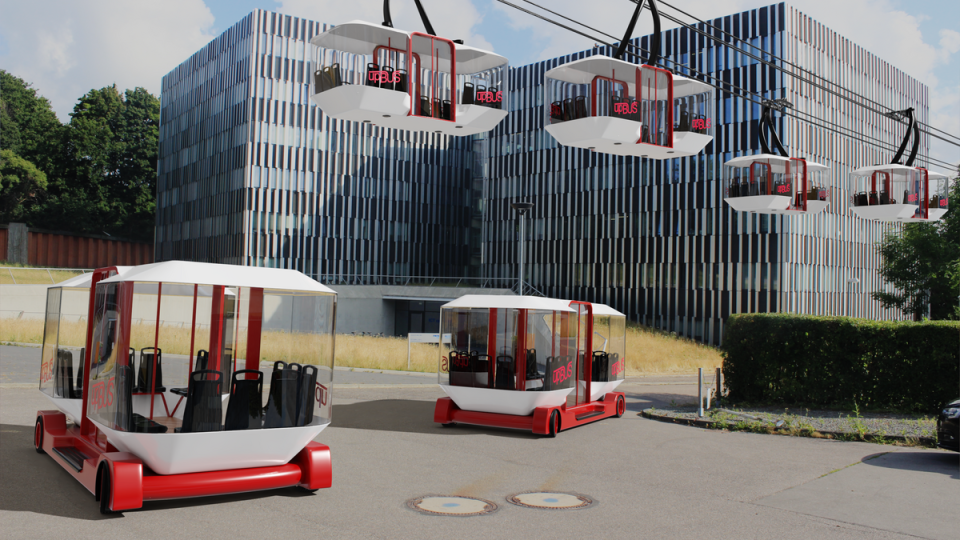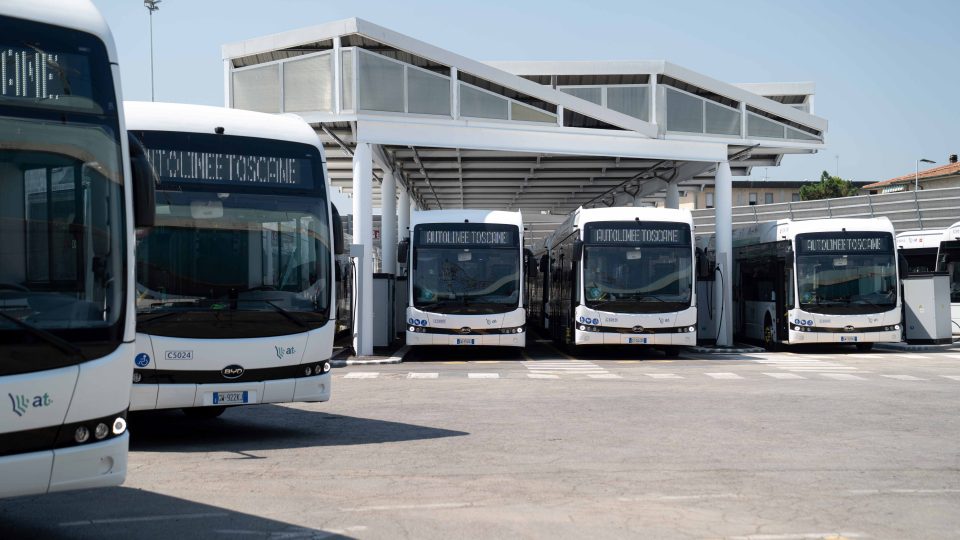VDV, Werner Overkamp: «We expect 1,000 e-buses put in operation yearly». Issues and outlooks in German public transport
Something is happening in the largest bus market in Europe. It looks like the German electric bus market switched gear last year. We discussed with Werner Overkamp, Vice President of the VDV (the Association of German Transport Companies) and Chairman of the Board of Management of the Division Bus, which are the expectations of public transport companies in such an epochal moment, how is the sector reacting to EU mandate for transitioning to zero emission vehicles and related (undeniable) financial issues, an outlook on the future of the sector.
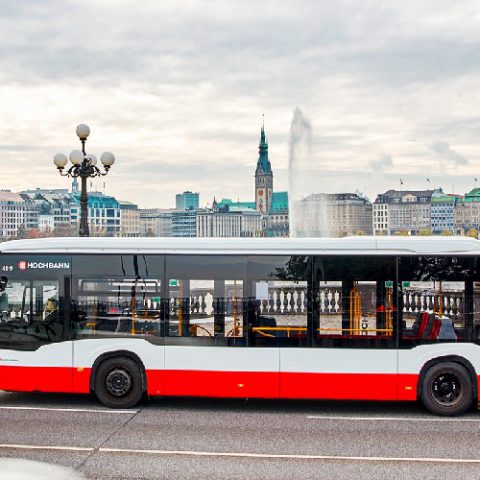
Something is happening in the largest bus market in Europe. It looks like the German electric bus market switched gear last year.
We discussed with Werner Overkamp, Vice President of the VDV (the Association of German Transport Companies) and Chairman of the Board of Management of the Division Bus, which are the expectations of public transport companies in such an epochal moment, how is the sector reacting to EU mandate for transitioning to zero emission vehicles and related (undeniable) financial issues, an outlook on the future of the sector.
With a warning: «We assume that the requirements for digitalization and electric mobility are too much for some public transport companies that there will be a market shakeout».
Recently released figures by PwC are a demonstration of the fact that German e-bus market is speeding up: 16 new e-bus registrations in 2017; 51 in 2018, 104 in 2019 (it was a watershed year for the e-bus market in Europe). Germany has been slower than other countries to scale up: with 357 new e-bus registrations, 2020 reached the highest level to date. And, still according to PwC, plans are already known for a further 3,089 e-buses by the middle of the decade.
The public transport companies have applied for financial support for another 1,400 electric buses, of which some have already been granted. We expect that 1,000 new electric buses will be put into operation each year in the coming years
Werner Overkamp, VDV Vice President and Chairman of the Board of Management of the Division Bus
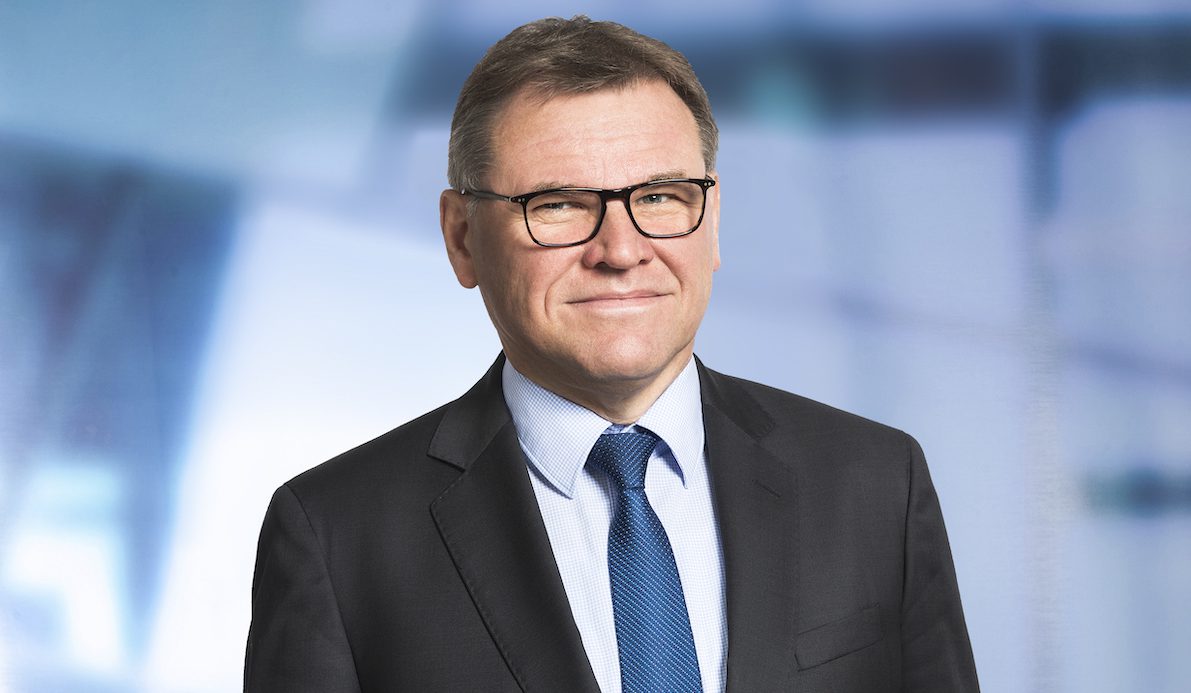
VDV, Werner Overkamp: energy transition for public transport
Werner Overkamp, at this year’s VDV Electric Bus Conference the study “The Decade of the Bus” commissioned by your organization and realized by PwC, was presented. May you be willing to outline the key finding of this report?
«The independent study “The Decade of the Bus” was published at the VDV Electric Bus Conference in the middle of March 2021. It states that at least an additional 1.8 billion euros have to be invested in the development of environmentally friendly, high-performance bus transport. The authors substantiate that public transport will mainly gain in attractiveness in the next few years if more passengers can be transported by line-service buses, which means that the number of line-service buses and the bus transport offer should be increased. Thus, further investments are needed in the public transport sector if it shall be able to make the ambitious public transport contribution to fulfill the climatic protection objectives by 2030, which were even further tightened up at the end of March 2021».
350 e-buses were registered in Germany in 2020. Last year German e-bus market made a significant ramp-up, as that number corresponds to more than half the e-buses delivered between 2012 and 2020. Should we say that the energy transition process has started in German bus sector? Which figures do you expect for the coming years?
«Yes, the transition to climatically neutral buses has accelerated fast in Germany. On the German roads we now have about 500 battery-electric buses, 1,500 hybrid buses and 50 fuel cell buses, which are powered by hydrogen. The public transport companies have also applied for financial support for another 1,400 electric buses, of which some have already been granted. We expect that 1,000 new electric buses will be put into operation each year in the coming years, which represents a considerable effort on the part of the sector».
Firstly, it has to be ensured that both diesel buses and electric buses can be operated in parallel for some years. Secondly, the new kind of propulsion gives rise to many questions. Is the depot big enough? Are the power connections sufficiently dimensioned? How long will diesel buses and electric buses have to be operated in parallel?
Werner Overkamp, VDV Vice President and Chairman of the Board of Management of the Division Bus
VDV: transition to e-buses bring issues
Dealing with e-buses and energy transition implies changes in the structure of public transport companies. How are VDV associates changing, in terms of organization and skills, to get ready for the challenge?
«The following has to be born in mind: the realization of an electric bus fleet is not only a question about vehicles. To begin with, the public transport company has to decide whether it wants to operate battery-electric buses or hydrogen-powered buses. This decision has far-reaching consequences for the conversion of the depot. Firstly, it has to be ensured that both diesel buses and electric buses can be operated in parallel for some years. Secondly, the new kind of propulsion gives rise to many questions. Is the depot big enough? Are the power connections sufficiently dimensioned? How long will diesel buses and electric buses have to be operated in parallel? Is the staff qualified for the new buses? Which new safety precautions have to be observed? And last, but not least: when will the electric buses be delivered? Each public transport company has to answer all these questions. The VDV prepares VDV Recommendations on the operation and the technical aspects to support the public transport companies by the transition to the new technologies. Some of these VDV Recommendations are also available in the English language».
VDV recently praised Bundesrat amendments to the Federal Government’s draft law on the implementation of the EU Clean Vehicles Directive. In particular, you’ve made a call for a national procurement quota instead of a quota that would be mandatory for each bus procurement. May you be more specific outlining the reasons for this position?
«The draft law allows that the German states reach agreements with the sector concerning the observance of the minimum objectives of the Clean Vehicles Directive (CVD) for buses. The original concept would have to led to economic and organizational overburdening of small public transport companies as regards the use of the CVD quotas. It concerns the conversion of the depots, which has to be realized as soon as the public transport company purchases a single emission-free or clean vehicle, the setting up of charging infrastructures, the parallel operation of several systems and the staff. Right from the beginning the VDV has made every effort to support the realization of a national quota. The Federal Government’s draft law has now been so amended that the German states have been entrusted with the supervision of the quota».
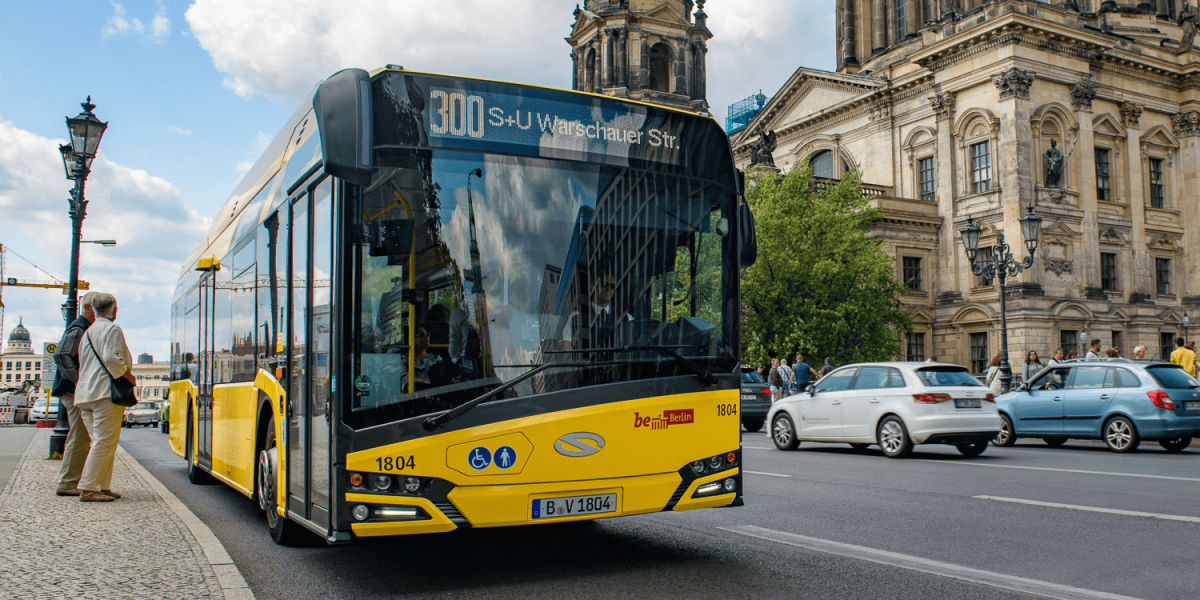
VDV: The combustion engine is unbeaten on long routes
In June last year, with regards to fuel cell bus adoption, VDV released that «the number of manufacturers of hydrogen-powered buses is still very small and many system components are not yet fully developed». Do you see any signals that the situation is changing?
«Meanwhile, the situation has improved a little. The Federal Government and some German states actively support the development of a hydrogen refilling infrastructure. They use public transport as a first mover and hydrogen purchaser. Being an industrial country and a vehicle building land rich in tradition, we would be happy if the German industry would broaden it range of offers. We are very confident in this respect».
Main German bus producers are also well-established internal combustion engines manufacturers. This may have been a brake so far to the deployment of e-buses in the country. Is the launch of serial-produced vehicles, in 2020, leading to a change?
«Through the years and decades diesel buses got ever more effective, low-emission and environmentally friendly than private cars, which is also the case today with an average degree of occupation of the bus. Combustion engines are also valuable in the new times because they can be powered by synthetic gas or bio fuels. The combustion engine is unbeaten on long routes. For some time, the vehicle manufacturers have been confronted with new conditions: Environmentally friendly propulsions are an element in the mobility transition in Germany, which is in turn the condition for effective climate protection. As far as I see it, the German manufacturers are not going to miss out on this future market».
Financing schemes for e-buses, the EU should help
Which are the financing schemes today in place in Germany to support the transition to e-buses? Do you think they are sufficient to kick-off the transition of public transport fleets?
«The present financial conditions are the basis for the transition of our fleets in Germany. The German states, the Federal Government and the European Union offer various financing schemes. However, at present it seems that the EU comes in for criticism: the EU Commission has not notified the German Government’s e-bus support programme yet. Being a sector association, we have for some time demanded that this procedure is speeded up: in its Clean Vehicles Directive the EU has set strict objectives for fast transition to clean propulsion technologies, and the sector will do every effort to fulfill these objectives. The Federal Ministry of Transport intends to financially support the municipalities and the public transport companies by the complicated local system changes to electric buses and presented an e-bus support programme at the end of 2020. However, to realize it to be able to fulfill the objectives of the CVD and the climate protection objectives as fast as possible, it has to be notified in Brussels in the very near future. As the CVD requires that additional costs are paid by the society, the financial system for public transport has to be revised and updated in the form of the announced support programme».
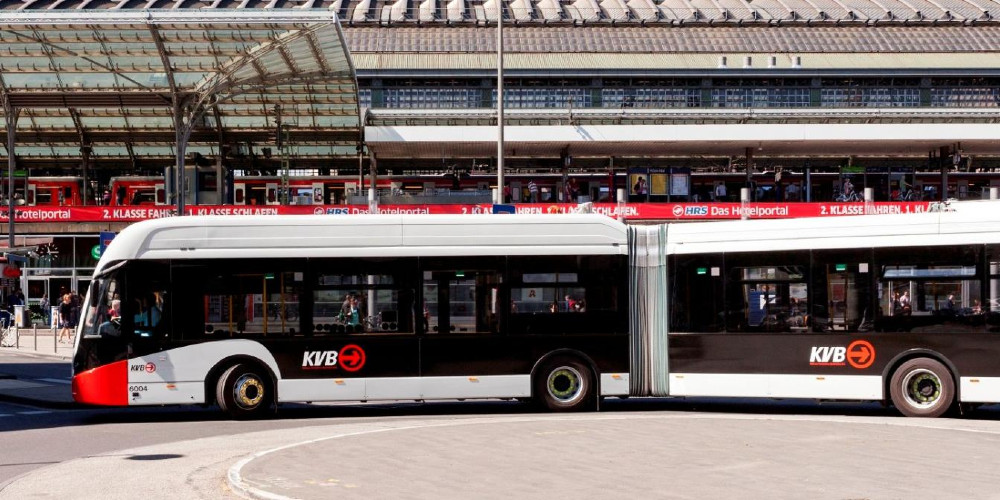
Times in which public transport was of minor importance are over now: on the one hand, the companies now have to be in a position to improve their offers both qualitatively and quantitatively because they take on the role of climate saver in the mobility sector. On the other hand, the expectations to the public transport companies are rising: more and better digital information and tickets, more on-demand transport in the outskirts of the cities or in the country, more integration with car/bike sharing, higher reliability, more safety/security and more cleanliness
Werner Overkamp, VDV Vice President and Chairman of the Board of Management of the Division Bus
In many cases, with the transition to e-buses, public transport companies are more looking for partners than just for supplier. Which requests you feel to make at industry players at this stage?
«The transition of the complete operating concept from the present diesel bus concept to an electric bus concept can only be realized if the depots, the workshops, the infrastructure and the operating systems are adapted accordingly. The German public transport companies do not employ so many project managers that they can realize this transition, which is also characterized by intensive developments. Therefore, the total transition and an overall concept are often required in calls for tenders. In the next few years, the new operating concepts will get fully established and new operating routines will be realized, which will anew modify the partnership».
Do you think gas-powered applications (CNG-LNG) or biofuel can play a role in the energy transition process of public transport?
«Being a sector association, we are open to all technologies because only the local public transport companies can decide which technology is the best for them in view of their present and future situation. Being the VDV Vice President, I believe that it is advantageous with many different technologies, which are systematically developed. It is obvious that the battery-electric bus is in the lead at present, but this was not the case only a few years ago. Nevertheless, it is not possible to make a general recommendation. Depending on the local availability of hydrogen or bio fuel and the topography of the routes, these technologies also have their advantages and areas of operation. However, in Germany it is the general opinion that bio fuel should not be used if it would be produced on the account of foodstuffs».
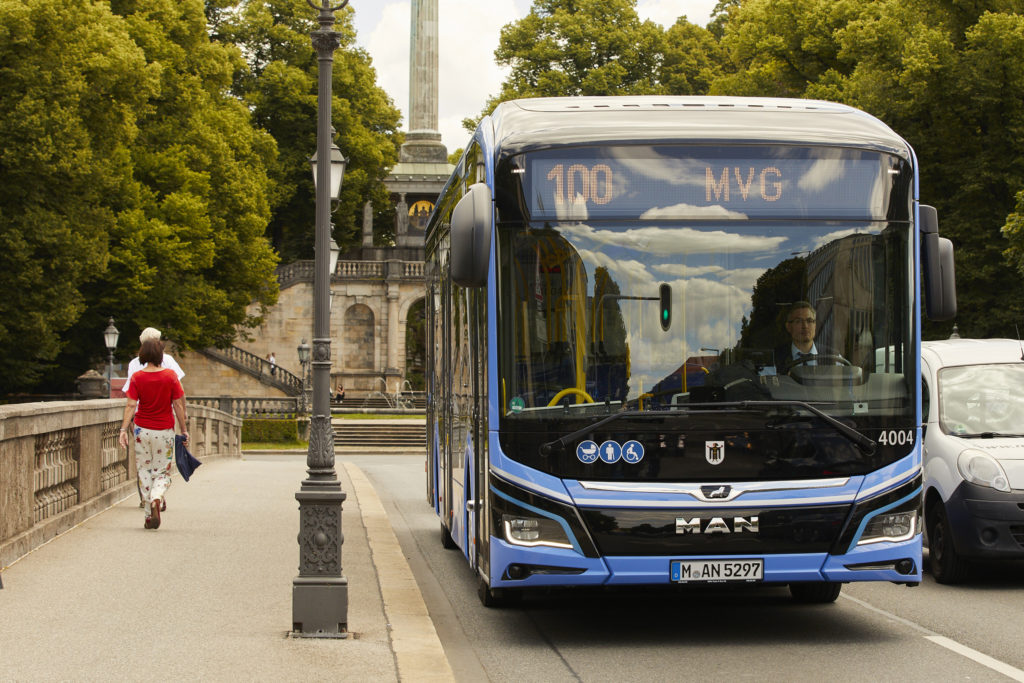
Life cycle cost of e-buses and diesel buses
According to many, with e-buses we’ll witness an increase in the average age of the fleets, both for the longer lifespan of electric driveline components and both because the TCO of an electric bus is today calculated to be the same as a diesel bus on a timeline of 15-20 years. How do you see this scenario? Could this lead to negative repercussions on the appeal of public transport?
«To begin with, our effort and costs increase significantly. When electric buses dominate the fleet, it might be so that these buses can be operated for a longer time and thus at lower operating costs because they have fewer and less complicated drive components. However, this assumption is made with many unknown factors. Thus, we do not know how many components, for example batteries, with which are not so familiar yet, and for example the HVAC system interact with one another and how these components will be affected in daily operation».
Leasing models are much more expensive than direct financing due to the good creditworthiness of the public transport companies
Werner Overkamp, VDV Vice President and Chairman of the Board of Management of the Division Bus
Which tools do you think manufacturers could be providing in order to lower the upfront cost of e-buses and make them more affordable to operators? There is much talking about battery leasing and project financing, for instance…
«On the basis of our assessment, we believe that battery buses can be economic in their lives and that the life cycle costs can reach the level of diesel buses. However, the investment costs in the infrastructure cannot be split without increasing the operating costs. At present, Germany relies on public financial support. Leasing models are much more expensive than direct financing due to the good creditworthiness of the public transport companies».
The emergence of macro trends such as digitalization and energy transition are already, according to many, bringing towards a concentration of public transport services in the hands of larger companies. Then there are EU regulations which made mandatory the calling for tender for public transport services. And Covid put much pressure on PTOs balance sheets. Do you think these circumstances will end up bringing a push towards large companies getting a larger share of the market?
«A good answer is often: It depends. In Germany we have the special economic system of municipal companies and the possibility of direct award of services. This instrument makes it possible for the cities and municipalities to protect and support their own medium-sized enterprises. It is always necessary to stand up to the innovation pressure. The VDV tries to coordinate strategies and processes and to inform the public transport companies how they can meet these requirements. However, we assume that the requirements for digitalization and electric mobility are too much for some public transport companies that there will be a market shakeout. We may not forget: for many years and decades it was politically required that the public transport companies should increase their cost-effectiveness. To put it bluntly, public transport had to be free of charge. These times in which public transport was of minor importance are over now: on the one hand, the companies now have to be in a position to improve their offers both qualitatively and quantitatively because they take on the role of climate saver in the mobility sector. On the other hand, the expectations to the public transport companies are rising: more and better digital information and tickets, more on-demand transport in the outskirts of the cities or in the country, more integration with car/bike sharing, higher reliability, more safety/security and more cleanliness. The following applies: the tasks of the public transport companies get more manifold and the competent authorities and the customers’ requirements increase. These facts are not without consequences».
